Clove Oil For Toothache: 6 Easy Relief Methods To Try Now
Take advantage of this spice's anesthetic and antiseptic properties to relieve toothache.
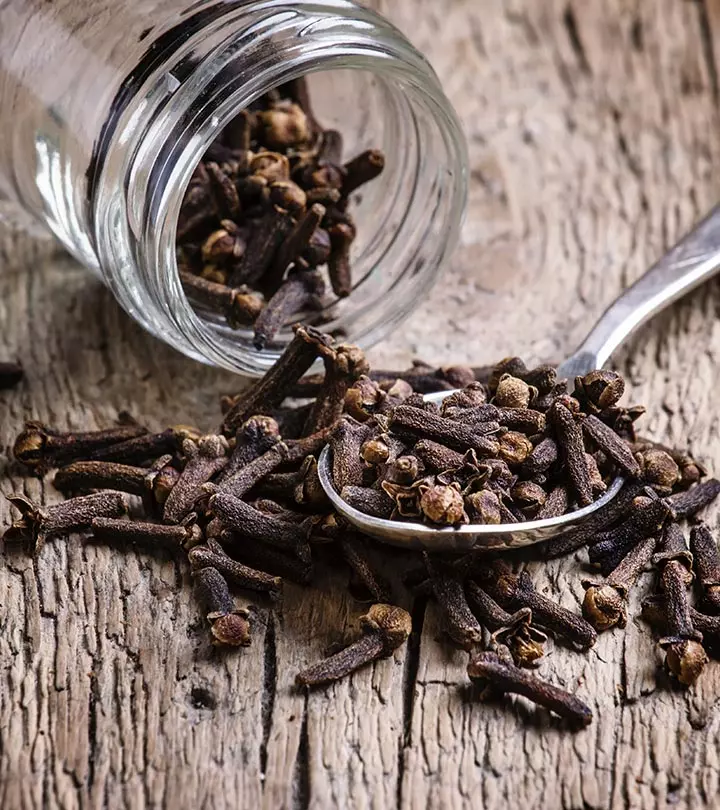
Image: Shutterstock
Cloves sometimes play a spoilsport as you devour your favorite dish. They are not here to please your taste buds, anyway. However, they have many benefits, and especially, many people use clove oil for toothache. Clove oil, derived from clove buds, is a natural remedy that has been used for centuries to soothe toothaches. It contains eugenol, a powerful compound with natural anesthetic and anti-inflammatory properties (1). This article discusses all you need to know about using clove oil for toothache, how you can use it, how it works, and the potential risks to be wary of. Keep reading!

 Know Your Ingredient: Clove Oil
Know Your Ingredient: Clove OilWhat Is It?
A common aromatic spice native to Indonesia, used for its medicinal, therapeutic, and flavoring properties.
What Are Its Benefits?
Relieves toothache and gum pain, aids digestive health, and may help treat infections and inflammation
Who Can Use It?
Everyone can consume it in moderation.
How Often?
Can be used topically for gums or skin issues twice a day
Caution
May cause allergic reactions, toxicity, muscle pain, and when ingested may affect blood glucose levels. Should be kept away from children.
In This Article
Cloves – A Brief

Commonly used as a spice, cloves are commercially harvested in India, Bangladesh, Indonesia, Pakistan, Sri Lanka, and Madagascar. They are the aromatic flower buds of a tree. This tree is evergreen and can grow anywhere between 8 to 12 meters tall.
Cloves are a popular traditional addition to Asian, African, and a few Middle Eastern cuisines. They are used to lend flavor to meats, marinades, and curries, and even to certain hot beverages.
Given the bioactive chemicalsi Chemical compounds found in fruits, vegetables, and nuts which help improve health and prevent diseases like cancer. the spice contains, clove is also used as an ant repellent. The spice is largely used to treat digestive issues and improve other bodily functions – the most important of those being in the treatment of dental problems (1).
 Did You Know?
Did You Know?That’s not all – there is more to clove than what we have seen till now.
Key Takeaways
- Clove oil has a compound known as eugenol that supports good oral health.
- Simply chew whole cloves, apply clove oil, sip a cup of clove tea, or gargle with clove water.
- The most effective way to use clove oil is to combine it with carrier oil.
- Do not use in excess as it may cause side effects like allergies, nausea, sore throat, and sometimes kidney or liver problems.
What Research Says About Clove Oil

Research states numerous benefits of clove oil. One of those is its importance as an anti-inflammatory agent, given the presence of a compound called eugenol.
The oil of cloves aids in the treatment of ailments like acne and candida as well. Clove oil is extremely rich in antioxidants and benefits your health in numerous other ways.
As per studies, clove oil can be used to treat other ailments like cough, cold, sinusitisi Inflammation in the tissues lining the sinuses or small air pockets around the nose and eyes, causing headaches, fever, and blockages. , and sore throat. It acts as a digestive aid and prevents nausea and vomiting. It acts as an antiseptic as well – addressing fungal infections and helping relieve athlete's footi This fungal infection of the feet can cause rashes, itchiness, redness, or stinging sensations on the skin. (2).
Clove oil has also been found to help with premature ejaculation (3). Most of these benefits can be attributed to the presence of eugenol (which we have discussed), acetyl eugenol, and caryophyllenei A liquid commonly found in essential oils exhibiting antimicrobial, anti-inflammatory and anti-cancer properties. .
Well, clove is great for this and that – but as we come back to the actual topic, we begin to understand its immense value in helping cure toothaches.
How Clove Oil Works For Toothache
Clove oil has often been considered one of the most popular home remedies for toothache and we will tell you why. This is exactly where we get a better picture of eugenol. This ingredient in clove oil possesses natural anesthetic and antiseptic properties, which help reduce inflammation in the mouth. As per a study, eugenol is much more effective than any other analgesici A substance that helps reduce inflammation or relieve pain by altering the brain’s perception of pain. when it comes to oral surgeries and tooth extraction (4). But keep in mind that clove or clove oil has an unpleasant taste and can cause certain side effects – which is why it must be given only to adults and older children who wouldn’t swallow it (the clove) by mistake.
Eugenol also helps numb the problem area – which makes it easy to conduct a surgery. Another study involved the use of homemade clove gel, 20% benzocaine, and a placebo (5). The study results showed that the clove gel achieved the same success as benzocaine (an ingredient used in ointments) – meaning the two significantly reduced the pain. That said, benzocaine can cause allergic reactions and other side effects – which is where clove emerges as a safer and better alternative (6).
 Trivia
TriviaKnowing how clove works for a toothache isn’t a big deal – most websites on the internet can give you that information in seconds. What matters is how you can use clove to help treat your toothache. That’s the real deal.
And that’s what we will look at now.
Ways To Use Clove Oil For Toothache Relief

There are different ways of using clove oil for tooth pain. Take a look:
1. Whole Cloves For Toothache
Here you will use whole cloves for tooth pain.
- Take one to three whole pieces of this spice and place them next to the tooth that is causing pain.
- Now, wait for a while. The clove pieces will slowly soften. Gently grind them. This releases the clove oils into your mouth. They run over the affected area and ease inflammation and pain.
- You can leave the clove pieces in the area for about 20 minutes.
You can also chew and eat the cloves. Otherwise, you can rinse your mouth with a warm salt solution (½ teaspoon of salt in 30 ml of water) and spit the pieces out. Don’t worry if you experience a tingling sensation lingering in your mouth. That’s common. It will subside in 10 minutes.
And here’s a recipe for you – using whole cloves for a toothache. You can also use it to treat pain from tooth decay and cavity or dental caries.
Cinnamon-Clove syrup
What You Need
- 1 cup of sugar
- 1 cup of water
- 1 cup of cinnamon stick, broken into pieces
- 1 tablespoon of ground or whole cloves
Directions
- Take a small saucepan and combine all the ingredients in it.
- Keep it uncovered.
- Bring it to a boil, stirring the sugar all the while to dissolve it.
- Lower the heat and let it simmer for about 10 minutes.
- Let it cool down. Remove the cinnamon pieces and cloves. If you had used clove powder in place of whole cloves, strain the liquid through a cheesecloth.
- Pour the syrup into a glass container. Ensure the lid is secure.
- Refrigerate.
You can use this syrup to add zing to your cocktails or other non-alcoholic drinks.
2. Ground Cloves For Toothache
Ground cloves work well too. Preparing them is simple. First, you can ground the cloves normally.
- Take 1/8 teaspoon of the ground cloves and add them to a bowl. To these, add ¼ teaspoon of olive oil.
- Stir thoroughly until it is properly mixed.
- Dip a cotton swab into the mixture and then apply it to the inflamed area in your mouth – advisably on the painful tooth and the surrounding area.
- Leave the cotton swab on the tooth for about 20 minutes. Spit it out and rinse your mouth with warm salt water.
If you don’t want to use a cotton swab, there is another option. Take a pinch of ground clove and apply it to the affected area in your mouth. The saliva will do its job and help your tooth.
3. Clove Oil
You can apply the oil directly to your tooth to help relieve the pain.
- Take a cotton swab and dip one end of it into the clove oil.
- Apply the oil directly to the painful tooth and the inflamed area surrounding it.
- Take the swab out and let the oil rest on the affected area for about 20 minutes.
- Rinse your mouth with a solution of salt water.
One thing to make a note of is that the nerve of the tooth might get exposed. In that case, you need to be extra cautious. And yes, this oil is not going to taste nice. It will take you a while to get used to it.
Also, try not to swallow the oil.
Natalie Wood, a blogger, shared her experience of excruciating pain caused by an emerging wisdom tooth and how she used clove oil to manage the ache. She writes, “I smell of clove oil. Clove oil is brilliant, by the way, for toothache. I just seem to use that much I smell of it for days after (i).”
4. Clove Oil Compress
This has been touted as the most effective method for treating toothache. This is plain good news for anyone who detests putting clove directly into their mouth.
- Add ½ teaspoon of olive oil to a bowl. To this, add 2 to 3 drops of clove oil. Mix thoroughly.
- Take a cotton ball and dip it into the mixture.
- Apply it to the painful tooth and the surrounding area.
- Hold the ball in place by gently biting down on it.
- This is called the compress.
- Leave it as it is for about 20 minutes. Then, remove the ball and rinse your mouth with a warm salt solution.
5. Clove Tea

It has a spicy aroma. It has a rich flavor. And most importantly, it helps cure your toothache. Though there is no specific dose of clove tea recommended for treating toothache, you can simply steep one teaspoon of clove in 470 ml of boiling water. However, ensure you don’t intake the tea in large amounts. This is because clove might have anticoagulant effects, meaning it can thin your blood – which, in a way, is good, but not always.
If you are about to have a tooth extraction surgery, avoid cloves as it might cause excessive bleeding. Yes, this is contradicting what we have discussed of eugenol numbing the problem area during surgery. This is because of the lack of sufficient information in this regard. Hence, consult your doctor.
6. Gargling With Clove Water
Take a few cloves and grind them to a fine powder. Add this powder to a glass of warm water. Gargle with water with clove powder for toothache. This process helps remove the bacteria present in the mouth (especially around the infected area) and can also act as a painkiller.
If you are wondering if you should use clove alone for your tooth discomfort, there is great news for you. Following is one effective combination of clove with something else that can work wonders for your toothache.
The Combination With Oil Of Cloves For Toothache
That something else is cayenne pepper.
And yes, for obvious reasons, this remedy can cause a burning sensation. But it’s worth the sacrifice.
Crush a few whole cloves and add them to a bowl. Take an equal amount of cayenne pepper powder and add it to the clove powder. Add a few drops of water to this mixture to get a thick paste.
Take a cotton ball and roll it into the mixture. This thoroughly coats the cotton ball with the mixture. Now, place the ball directly on the affected area in your mouth. This treatment might irritate the gums – so what you can do is avoid the gums and place the ball on the tooth.
All fine. But where do you buy clove oil?
Where To Buy Clove Oil For Toothache
This is not the rarest of the rare ingredient we are talking about. It is as common as cold! You can find clove oil (or cloves) in the medicinal section of your nearest supermarket. You can also find it at the pharmacy at the end of your street.
One smart way of using clove oil is to use it with a carrier oil. A carrier oil is a neutral oil that is made from vegetables or nuts – it helps dilute the stronger essential oils, like that of clove.
Also, when you are picking your clove oil, you must ensure it is the right kind. You must get 100% pure oil. Organic is best. Anything lesser than pure will not give you the needed benefits.
You have seen how supremely great clove oil can be. But yes, you guessed it right, it has its side effects too. There are certain things (apart from its seemingly unbearable taste) you need to keep in mind before using it.
Side Effects Of Clove Oil

Allergies
If you have any allergic reaction like hives, swelling of your face, tongue, or lips, or difficulty in breathing, stop consumption and visit a doctor.
Muscle Pain And Fatigue
Consuming cloves can cause muscle pain or weakness, also called lactic acidosis. You might also feel numb in your arms or legs. Uneven heart rate and dizziness or extreme fatigue are other side effects one must take note of.
Issues With Blood Glucose Levels
Clove oil, when taken internally, might lower blood glucose levels. Hence, individuals who are prone to low blood sugar must exercise caution before taking cloves. The same applies to people who are on diabetes medications.
Toxicity
This might happen following the intake of large doses of undiluted clove oil. The side effects can include nausea, sedation, sore throat, and even seizuresi A period of abnormal electrical activity in the brain that causes loss of consciousness, jerking of arms and legs, and stiffening of the body. . In certain cases, it can cause blood disorders and kidney or liver damage.
Other Common Side Effects
A few other common side effects of topically applied clove include problems with erection, delayed ejaculation, skin rashes and itching, and sore gums (7).
Hence, take care. If the intake of clove oil upsets your stomach or causes a burning sensation, stop immediately.
You can use cloves in numerous other ways as well.
Tips For Using Cloves
- You can use them to flavor your food. They have a strong and spicy flavor. Just a little bit of the spice goes a long way in making your food taste better. You can also add crushed cloves to cakes and desserts. Cloves make a good addition to chutneys and pickles as well.
- You can use cloves in the household as well. Whether it is shooing away pests or creating a lovely fragrance, cloves work pretty good.
- Cloves can also be used to cure morning sickness. Grind 3 cloves along with turmeric and sugar. Add this mixture to water and drink twice a day.
Apart from clove oil, there are several other treatments that may provide toothache relief. Learn about them below.
Other Treatments For Toothache Relief
- Saltwater Rinse: Gargle with warm salt water to help reduce inflammation and ease pain.
- Peppermint Tea: Peppermint tea bags, applied to the affected area, may help numb the pain and soothe sensitive gums (8).
- Garlic: The allicin in garlic has antimicrobial properties, and chewing on it can help combat a tooth infection, treat an ulcer, and reduce pain (9).
- Onion: The antimicrobial properties of onions may help fight periodontitis (10). Place a small piece of raw onion on the affected tooth or gums to alleviate pain.
- Over-The-Counter Painkillers: Non-prescription medicines like ibuprofen or acetaminophen can offer temporary relief (11).
Always consult a dentist to address the root cause of toothaches and get a professional recommendation for persistent or severe pain.
Infographic: Simple Ways To Use Clove Oil To Relieve Toothache
A toothache can be a troubling and painful experience. You are probably concerned about the pain and want to get relief as soon as possible. Fortunately, you may be able to manage it with clove oil, which both relieves pain and destroys certain bacteria. Check out the infographic below for some quick and easy ways to use this oil to alleviate toothache.
Some thing wrong with infographic shortcode. please verify shortcode syntax
Clove benefits go beyond its flavor or aroma. It is popular as a toothache remedy. The bioactive components in this natural antibacterial and antifungal agent offer many health benefits. Clove’s essential oil contains eugenol, acetyl eugenol, and caryophyllene that help maintain oral health. You can chew whole cloves or use clove oil, clove tea, or gargle with clove water to relieve tooth pain. However, overuse of cloves may cause allergic reactions and, in severe cases, liver or kidney damage. If you experience any adverse effects, limit its use and seek medical advice.
Frequently Asked Questions
Can clove oil be used in combination with other treatments for toothache?
Yes, you can combine clove oil with other natural remedies like peppermint oil for added relief. You could also use it alongside over-the-counter pain relievers. However, it is always a good idea to consult with a healthcare professional before mixing different treatments to avoid any potential side effects.
How long do I leave clove oil on my tooth?
You need to leave clove oil on your tooth for at least 5 to 10 minutes before it starts working.
What can I mix clove oil with?
Essential oils of wild orange, cassia, and cinnamon blend well with clove oil.
Can clove oil be used for children or pregnant women with toothaches?
Clove oil is generally a safe and effective natural remedy for toothaches. Avoid applying clove oil directly to the gums or tongue, as it can cause irritation or tissue injury (8). Pregnant women should also avoid using clove oil as it may cause harm to the fetus (2), (9). Consult a doctor before using clove oil.
Can I use clove oil for other dental issues, such as gum pain or mouth sores?
Yes, its anti-inflammatory and antimicrobial properties may help reduce pain and minimize the risk of infection (8), (10). Make sure you use it in moderation and dilute it with a carrier oil as undiluted clove oil can irritate and burn the mouth.
How should I store clove oil to maintain its potency?
Store clove oil in a dark glass bottle with a tight-fitting lid in a cool and dry place to protect it against light and air and to prolong its potency.
Can I use clove oil if I have a dental crown or filling?
No, anecdotal evidence suggests that applying concentrated clove oil may soften the temporary dental fillings or cement used for the crowns, causing them to loosen or fall out. Instead, dilute the clove oil with a carrier oil and apply it to the surrounding gum tissue with a cotton swab or a clean finger without affecting the crown or filling.
Illustration: Ways To Use Clove Oil For Toothache Relief & Potential Risks
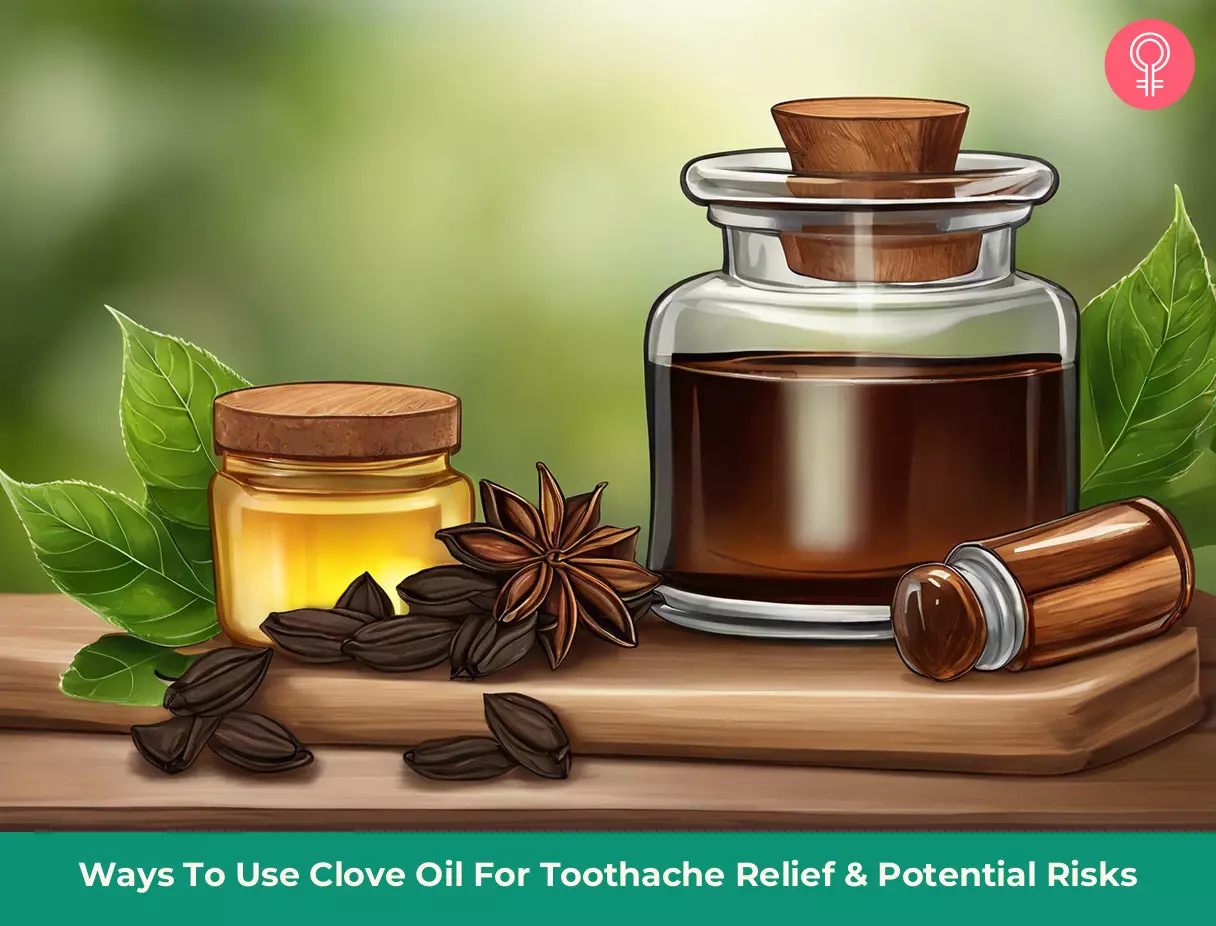
Image: Stable Diffusion/StyleCraze Design Team
Say goodbye to toothaches with an enlightening video on the potential wonders of clove oil. Discover its soothing properties, application techniques, and whether it’s the answer to your dental discomfort. Check it out now!
Personal Experience: Source
StyleCraze's articles are interwoven with authentic personal narratives that provide depth and resonance to our content. Below are the sources of the personal accounts referenced in this article.
i. Late night ramblings of a girl who’s wisdom tooth prefers pain to wisdom, https://welldidyouevah.wordpress.com/tag/wisdom-tooth/References
Articles on StyleCraze are backed by verified information from peer-reviewed and academic research papers, reputed organizations, research institutions, and medical associations to ensure accuracy and relevance. Read our editorial policy to learn more.
- Efficacy Of Specific Plant Products On Microorganisms Causing Dental Caries
https://www.ncbi.nlm.nih.gov/pmc/articles/PMC5296592/ - Recent Trends In Indian Traditional Herbs Syzygium Aromaticum And Its Health Benefits
https://citeseerx.ist.psu.edu/viewdoc/download?doi=10.1.1.465.5864&rep=rep1&type=pdf - Syzygium Aromaticum L. (Myrtaceae): Traditional Uses, Bioactive Chemical Constituents, Pharmacological And Toxicological Activities
https://www.ncbi.nlm.nih.gov/pmc/articles/PMC7072209/ - Effectiveness Of 0.2% Chlorhexidine Gel And A Eugenol-Based Paste On Postoperative Alveolar Osteitis In Patients Having Third Molars Extracted: A Randomised Controlled Clinical Trial
https://pubmed.ncbi.nlm.nih.gov/26188932/ - Comparison Of Topical Anesthetics (Emla/Oraqix Vs. Benzocaine) On Pain Experienced During Palatal Needle Injection
https://pubmed.ncbi.nlm.nih.gov/17331753/ - Remedies: Clove Oil For Tooth Pain
https://archive.nytimes.com/well.blogs.nytimes.com/2011/02/17/remedies-clove-oil-for-tooth-pain/?_r=1 - Clove
https://www.drugs.com/mtm/clove.html - Mentha Piperita L. -A Promising Dental Care Herb Mainly Against Cariogenic Bacteria
https://www.researchgate.net/publication/334469261 - Garlic (Allium Sativum L.) Bioactives And Its Role In Alleviating Oral Pathologies
https://www.ncbi.nlm.nih.gov/pmc/articles/PMC8614839/ - Garlic And Onion In Dentistry
https://www.researchgate.net/publication/286160133 - Pain Management For Dentists: The Role Of Ibuprofen
https://www.ncbi.nlm.nih.gov/pmc/articles/PMC3414241/ - Eugenol (Clove Oil)
https://www.ncbi.nlm.nih.gov/books/NBK551727/ - Exploring The Use Of Herbal Treatments During Pregnancy Among Saudi Women
https://www.ncbi.nlm.nih.gov/pmc/articles/PMC8631229/ - The Clove Tree And Its Products (Clove Bud, Clove Oil, Eugenol): Prosperous Today But What Of Tomorrow’s Restrictions?
https://www.researchgate.net/publication/348649211
Read full bio of Dr. Thomas Connelly
Read full bio of Ravi Teja Tadimalla
Read full bio of Arshiya Syeda
Read full bio of Aparna Mallampalli






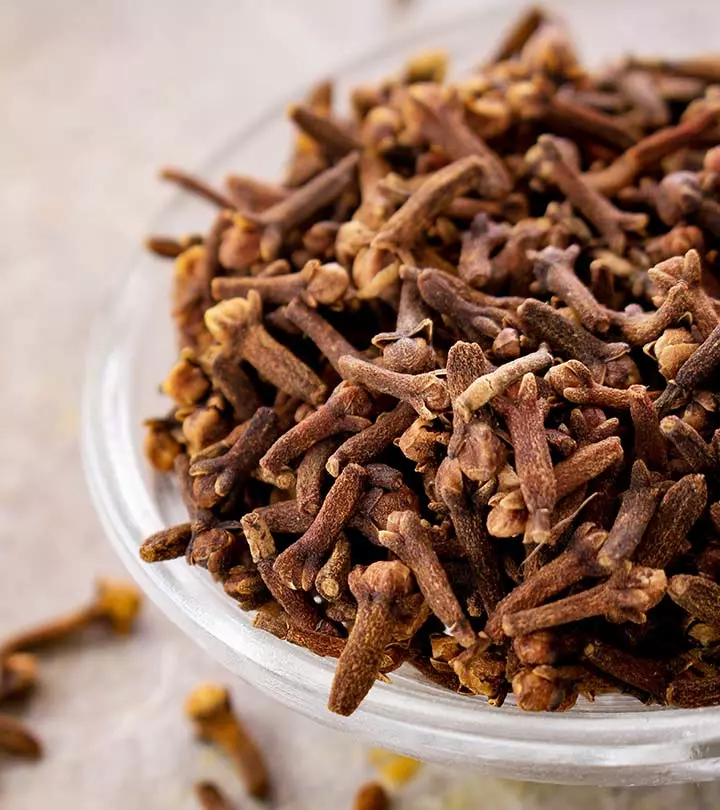


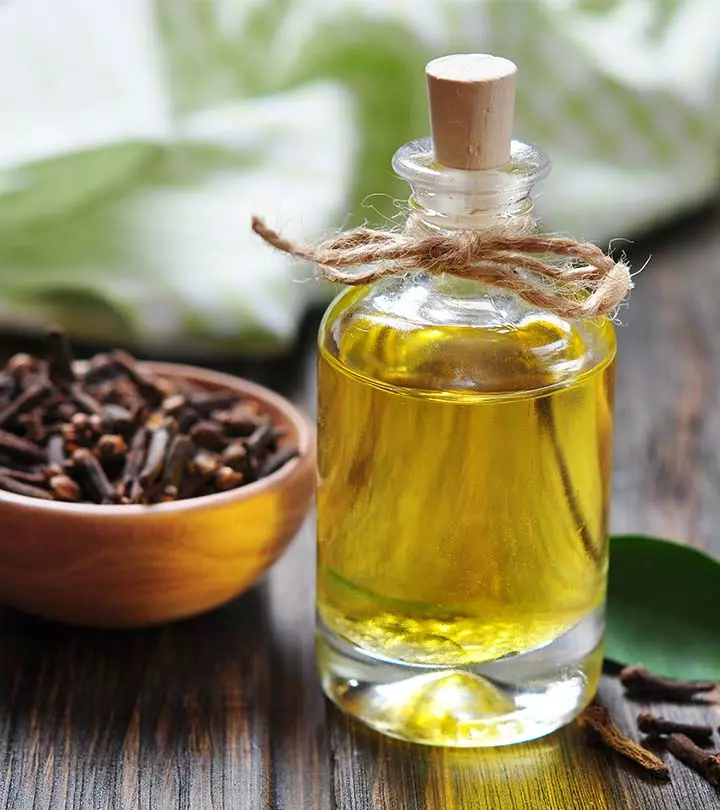
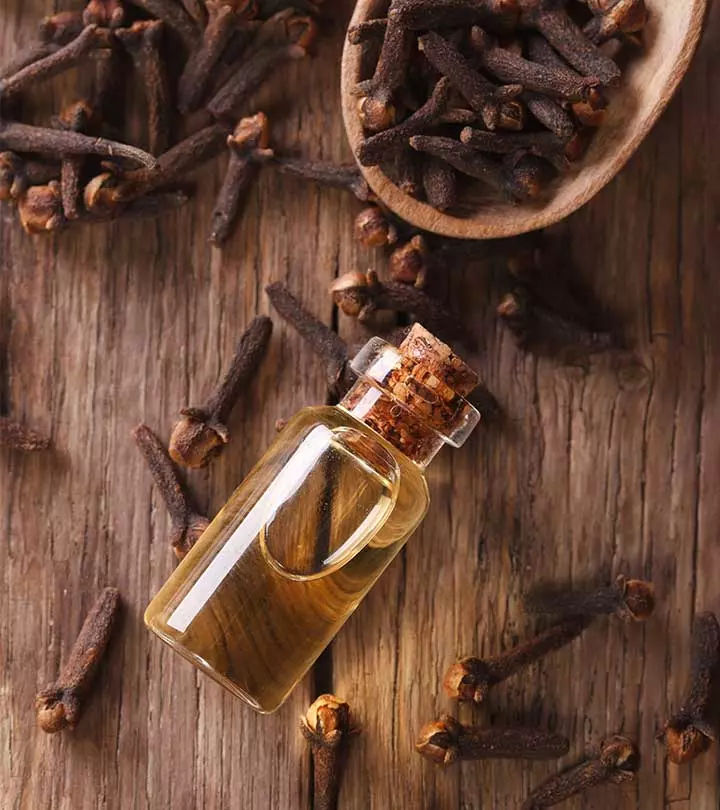

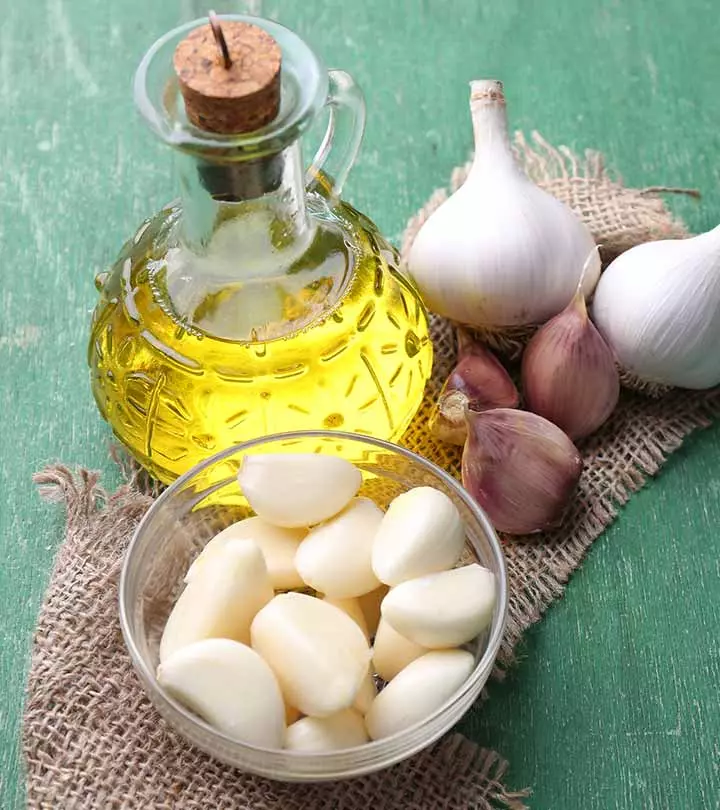
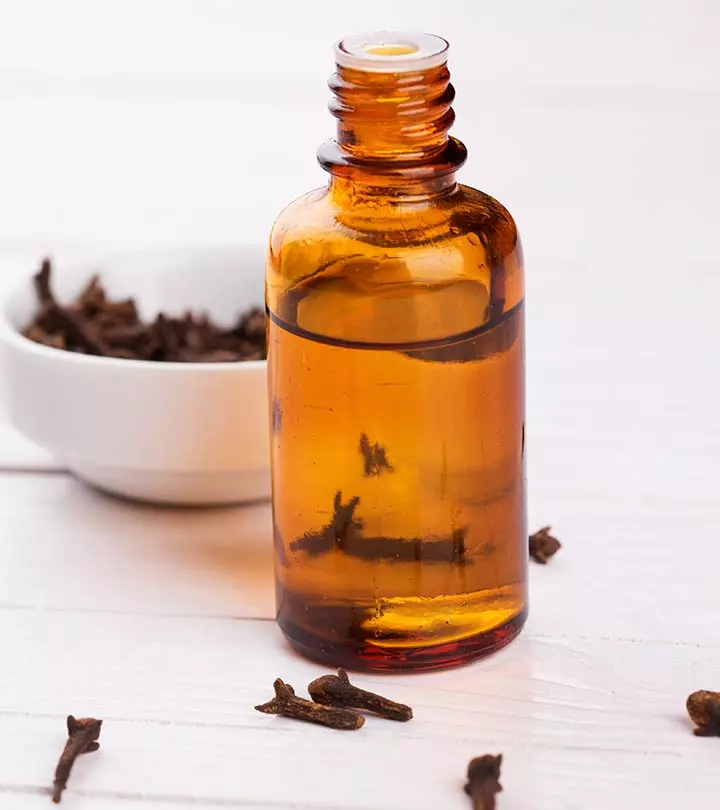


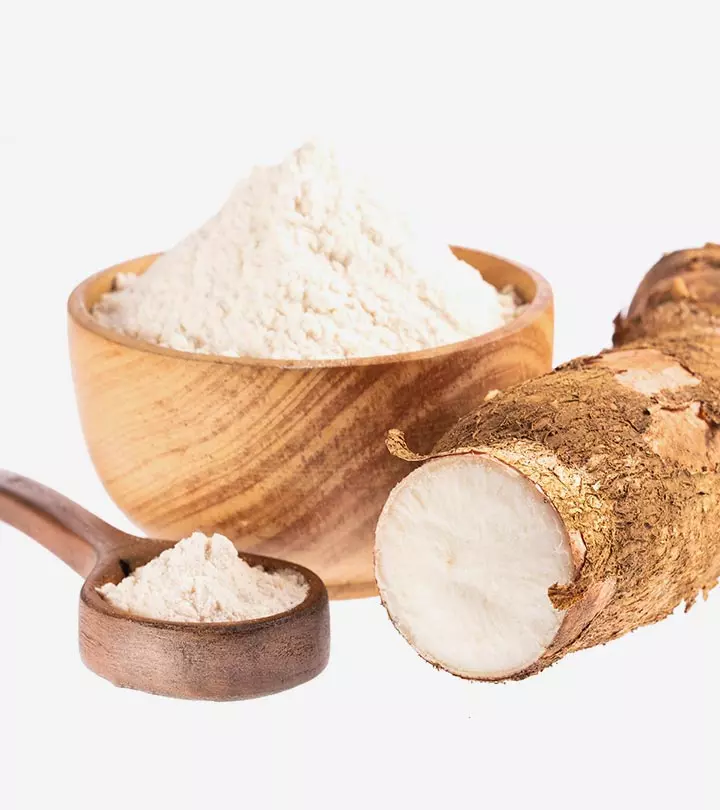
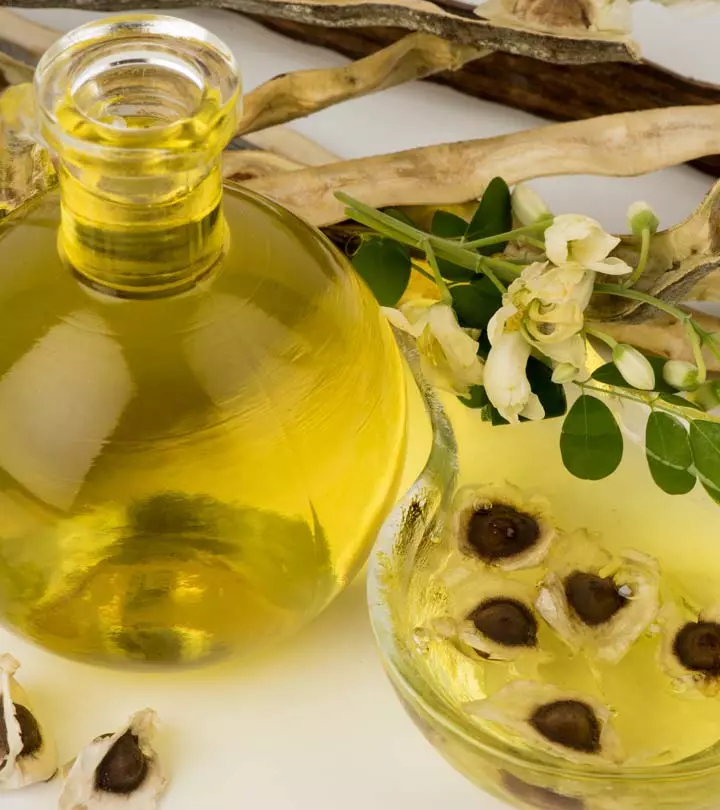
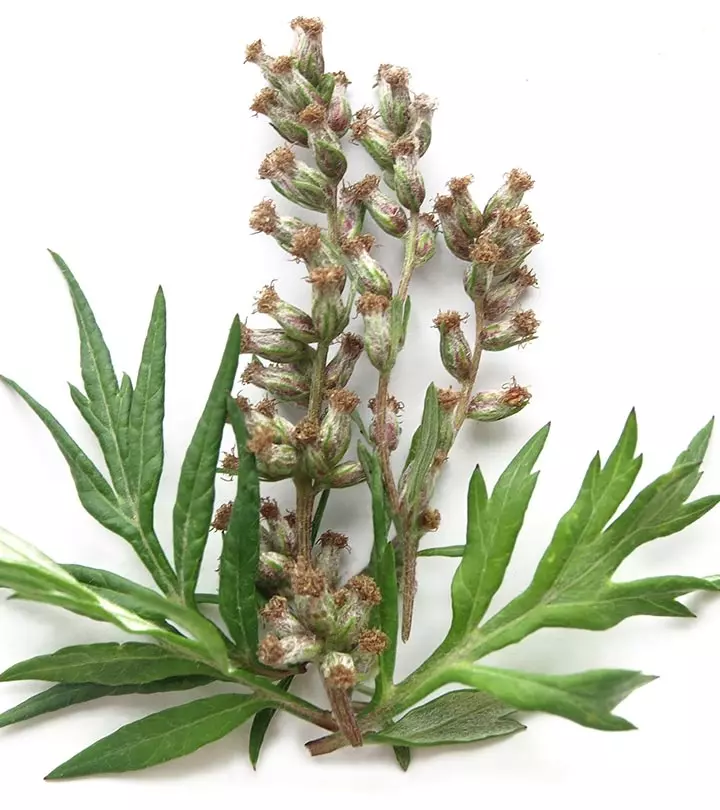


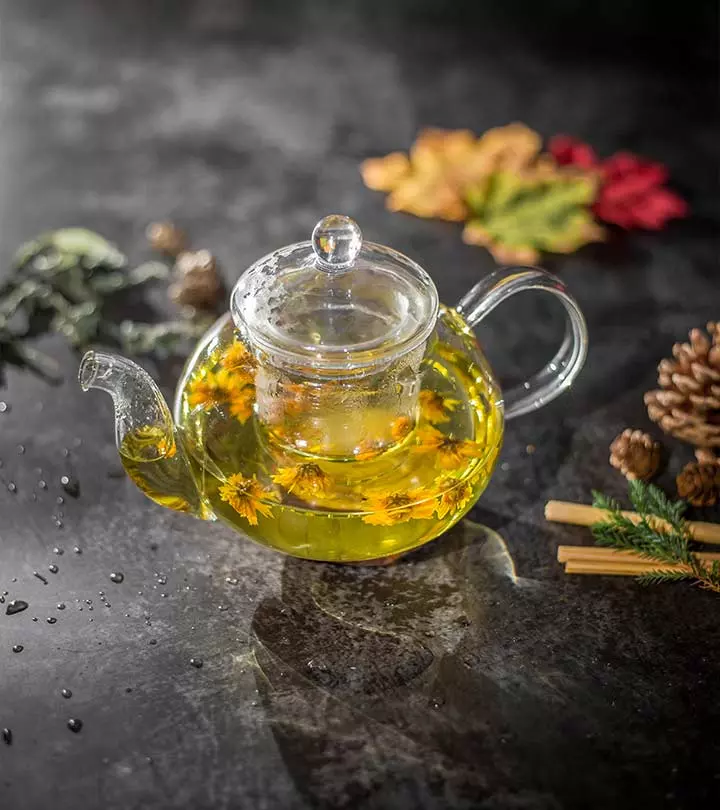




Community Experiences
Join the conversation and become a part of our empowering community! Share your stories, experiences, and insights to connect with other beauty, lifestyle, and health enthusiasts.